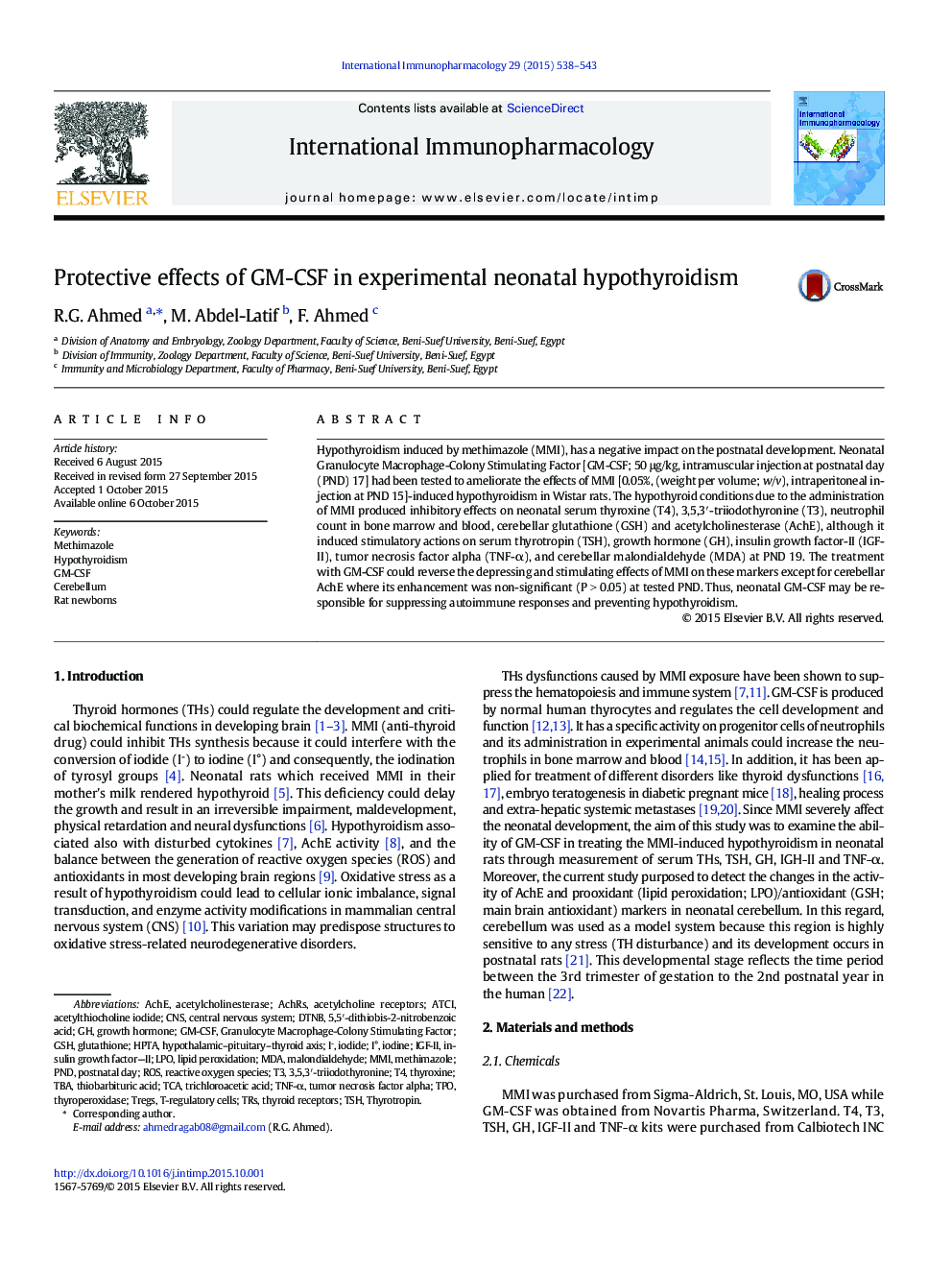| Article ID | Journal | Published Year | Pages | File Type |
|---|---|---|---|---|
| 5832193 | International Immunopharmacology | 2015 | 6 Pages |
â¢Immune responses may influence the neonatal tolerance to THs action.â¢Neonatal MMI might cause patho-physiological and patho-development states.â¢Early weaning GM-CSF may be responsible for suppressing autoimmune responses.â¢Early weaning GM-CSF preventing the neonatal hypothyroidismâ¢These protective effects may be either directly or indirectly related to TH action.
Hypothyroidism induced by methimazole (MMI), has a negative impact on the postnatal development. Neonatal Granulocyte Macrophage-Colony Stimulating Factor [GM-CSF; 50 μg/kg, intramuscular injection at postnatal day (PND) 17] had been tested to ameliorate the effects of MMI [0.05%, (weight per volume; w/v), intraperitoneal injection at PND 15]-induced hypothyroidism in Wistar rats. The hypothyroid conditions due to the administration of MMI produced inhibitory effects on neonatal serum thyroxine (T4), 3,5,3â²-triiodothyronine (T3), neutrophil count in bone marrow and blood, cerebellar glutathione (GSH) and acetylcholinesterase (AchE), although it induced stimulatory actions on serum thyrotropin (TSH), growth hormone (GH), insulin growth factor-II (IGF-II), tumor necrosis factor alpha (TNF-α), and cerebellar malondialdehyde (MDA) at PND 19. The treatment with GM-CSF could reverse the depressing and stimulating effects of MMI on these markers except for cerebellar AchE where its enhancement was non-significant (P > 0.05) at tested PND. Thus, neonatal GM-CSF may be responsible for suppressing autoimmune responses and preventing hypothyroidism.
